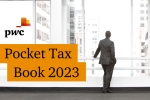Depending on where you are in the assessment process, you might be invited to attend a telephone-based interview, a knowledge-based technical interview or a face-to-face interview.
At PwC, our interviewers will consider what your experience and skills demonstrate you are able to offer. Your interview is as important to us as it is to you. Here are some valuable tips to help you to succeed.
Whichever interview you are working towards, we would always recommend you start to prepare well in advance. A good place to start in all instances is to begin to understand the topics which will be discussed in your interview and to think about how your experiences, skills and knowledge relate to these.
Some guidance is provided below in relation to the different types of interview.
Telephone interview:
If you are used to speaking to colleagues and clients on the telephone, undertaking a telephone interview can appear to be relatively straightforward. However, even highly capable candidates can perform poorly at this early stage, sometimes failing to do themselves justice at all. Therefore, preparation for this element of the assessment process is as vital as stages much later on in the process.
For many candidates, the situation can feel rather contrived and impersonal, due to the lack of eye-contact and ability to build rapport. However, considering and adopting some of the points below can help you to make a positive impression and, ultimately, succeed at this stage:
- Find a place where you will not be interrupted, lay your CV/ any notes out in front of you so you can refer to them quickly if you need to.
- Have a pen and paper in case you need to make a note of anything, such as the question being asked or something you think you might want to explore later.
- Answer the ‘phone with a smile! Smiling can help you to relax and, as a result, you will come across as more confident, friendly and assertive.
- Talk clearly and distinctly and think about your pace; if the interviewer is asking you to repeat yourself it might be because you are talking too fast.
- Try to connect with the interviewer in some way to build rapport. Consider what you might have in common and draw on this to create a dialogue
- Take time to consider your answer, if necessary, and make it clear to the interviewer that this is what you are doing, rather than just going silent.
- Ask the interviewer to clarify what they are asking you if you are unsure or repeat the question back to them if you want confirmation - listening on the phone can be challenging and interviewers will be sensitive to this.
- Answer the question that was asked and be careful not to go off the point. Support your answers with real-life examples that you have prepared from previous experience.
- Finally express your motivation for applying for the role coherently and try to end the call on a positive note; thanking the interviewer for their time.
Technical interview:
The technical interview is your chance to provide additional evidence about how, in the past, you have applied you technical skills and knowledge to deliver exceptional work.
In addition, we will be keen to assess your commercial knowledge and industry expertise, including how this can apply in the current market and economic climate, alongside any relevant or current sector developments. Most importantly, consider what might differentiate you from our current employees and be prepared to talk about this in the context of what you have achieved so far in your career.












